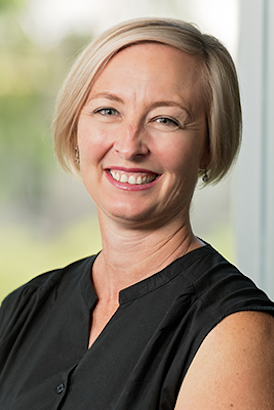Drones to test water from hazardous site
Amphibious drones could soon help water professionals test hazardous samples from hard-to-access sites if a South Australian invention gets off the ground.
Drones Over Water founder, designer and pilot Dan Squire said the technology has serious potential.
“Okay, drones are really cool, but this isn’t just a gimmick – it's a genuine opportunity,” Squire said.
“It gives [the water industry] an option where they can reduce the risk to a person and still get more data than they've had before.”
The drone is still in the development stage but it already has the ability to fly to a specific GPS location, collect a water sample, analyse its pH, conductivity and temperature, and fly the data back.
“It just lands on the water and the probes that are attached to it analyse the water, the same as any other probe would when you're standing on the side of a reservoir,” Squire said.
“We're also in a process of developing a way to take a physical sample from any height.”
He's also working to expand the range of tests that can be completed on-board and the ability to transmit the data for real-time, on the ground access.
 Drones Over Water founder Dan Squire.
Drones Over Water founder Dan Squire.
Squire is a sailor by trade and has always enjoyed tinkering with remote controlled aeroplanes, but the idea of creating an amphibious drone came to him while working at the Glenelg Wastewater Treatment plant.
“I've been in the water industry for the last five years and I saw that drones were being used in many different industries but probably not so much the water industry,” Squire said.
“Through my research and personal experiences I saw that being able to analyse water and get people off boats on water courses would be a really good first step.
“The main driver for it all was to improve occupational health and safety … the drone gets people out of these dangerous situations and the bonuses on top of that are the accuracy and adaptability.”
Squire said the drone will be useful for testing at reservoirs, chemical spills, wastewater plants, tailings dams and ocean oil spills, but initially the business would provide a service to customers.
“The business would go out and do the samples and basically provide whoever is managing that water system the data that they need - and probably more data than they've had before,” Squire said.
“Hopefully in the future develop a product so that I can sell the product to a wider international market.”
Squire won the Flinders University New Venture Institute Gold eNVIes award last year, with the prize including a $5000 travel scholarship to Austin, Texas.
He said he will use the trip to the United States later this month to speak with potential investors and business partners.
“I'm definitely looking at finding some money somewhere so that I can develop this further and make it a going concern,” Squire said.
“That's what I'm hoping to get when I go over to the US. If not, I'm looking at some local organisations to possibly fund a trial so that we can make it all come together.”

